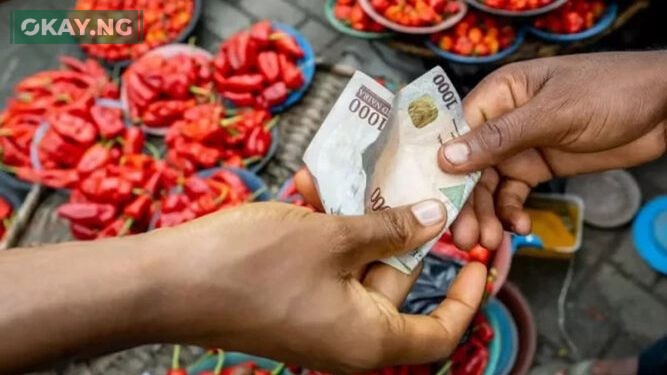The relentless surge in food prices that has burdened Nigerian households appears to be easing, according to the latest data from the National Bureau of Statistics (NBS). The February 2025 Consumer Price Index (CPI) report reveals a notable year-on-year decline in food inflation, dropping to 23.51% from a staggering 37.92% in February 2024. While this offers a glimmer of hope, a closer look reveals that food prices are still inching upward on a monthly basis.
“The Food inflation rate in February 2025 was 23.51% on a year-on-year basis. This was 14.41% lower compared to the rate recorded in February 2024 (37.92%),” the NBS report stated. This substantial decrease, attributed partly to a change in the base year for measurement, provides a statistical snapshot of improvement. However, the month-on-month food inflation rate of 1.67% indicates that the reprieve is perhaps more of a slowdown than a full halt to rising costs.
As a news writer with years of experience tracking economic trends, I understand the anxiety these figures can evoke. While the year-on-year drop is a positive sign, the persistent monthly increase reminds us that the fight against rising food costs is far from over.
Factors Behind the Slowdown
The NBS report points to a decrease in the average prices of several essential food items as a key driver of the year-on-year decline. Staples like yam tubers, potatoes, soybeans, maize flour, cassava, and dried bambara beans experienced lower price increases compared to previous months. This could signal an improvement in supply chains, a crucial factor in a nation heavily reliant on agricultural produce. Additionally, reduced pressure from exchange rate fluctuations, which have historically fueled food price volatility, may also be contributing to this moderation.
“Compared to the month of January 2025, there was an observed decline in the average prices of food items like Yam tuber, Potatoes, Soya beans, Flour of maize/cornmeal, Cassava, Bambara beans (Dried), etc,” the report detailed. This provides a tangible sense of which commodities are contributing to the overall trend.
The Persistent Challenge
Despite the positive year-on-year figures, the fact remains that food prices are still rising. Food and non-alcoholic beverages continue to be the most significant contributor to Nigeria’s overall inflation, accounting for 9.28% of the total headline inflation rate. On a month-on-month basis, food inflation contributed 0.82%, underscoring the ongoing pressure on household budgets.
“The average annual rate of Food inflation for the twelve months ending February 2025 over the previous twelve-month average was 34.74%, which was 4.67% points higher compared with the average annual rate of change recorded in February 2024 (30.07%),” the NBS report further explained. This highlights that while the rate of increase might be slowing, the cumulative impact over the past year remains significant.
Regional Disparities
Food inflation is not uniform across Nigeria. Sokoto recorded the highest food inflation rate at 38.34%, followed by Edo at 35.08% and Nasarawa at 33.53%. These figures paint a picture of varying economic realities across the country, potentially driven by factors such as supply chain disruptions, transportation costs, and seasonal variations in agricultural output.
Conversely, Adamawa at 12.18%, Ondo at 13.66%, and Oyo at 15.55% experienced the lowest food inflation rates. These states may be benefiting from better local production conditions and less reliance on imported food, offering lessons for other regions.
The month-on-month data further emphasizes these regional differences. Sokoto saw the highest increase at 18.83%, while Ondo, Kaduna, and Oyo recorded declines, suggesting localized improvements in supply or the impact of specific policy interventions.
Human Angle: The Lived Experience
Beyond the statistics, these figures represent real struggles for everyday Nigerians. The cost of food directly impacts families’ ability to afford basic necessities, influencing everything from nutrition to overall well-being. While the year-on-year decline offers a sliver of hope, the continued monthly increase means that many are still feeling the pinch.
As we analyse these economic indicators, it’s crucial to remember the human stories behind the numbers. The hope is that the slowing rate of increase will translate into tangible relief for families across the nation.
Looking Ahead
The moderation in food inflation is a welcome development, but the persistent monthly rise underscores the need for continued vigilance and strategic interventions. Addressing supply chain inefficiencies, supporting local agricultural production, and stabilising the exchange rate are crucial steps towards ensuring food security and affordability for all Nigerians. As we move forward, it will be essential to monitor these trends closely and implement policies that translate these statistical improvements into real relief for households nationwide.













